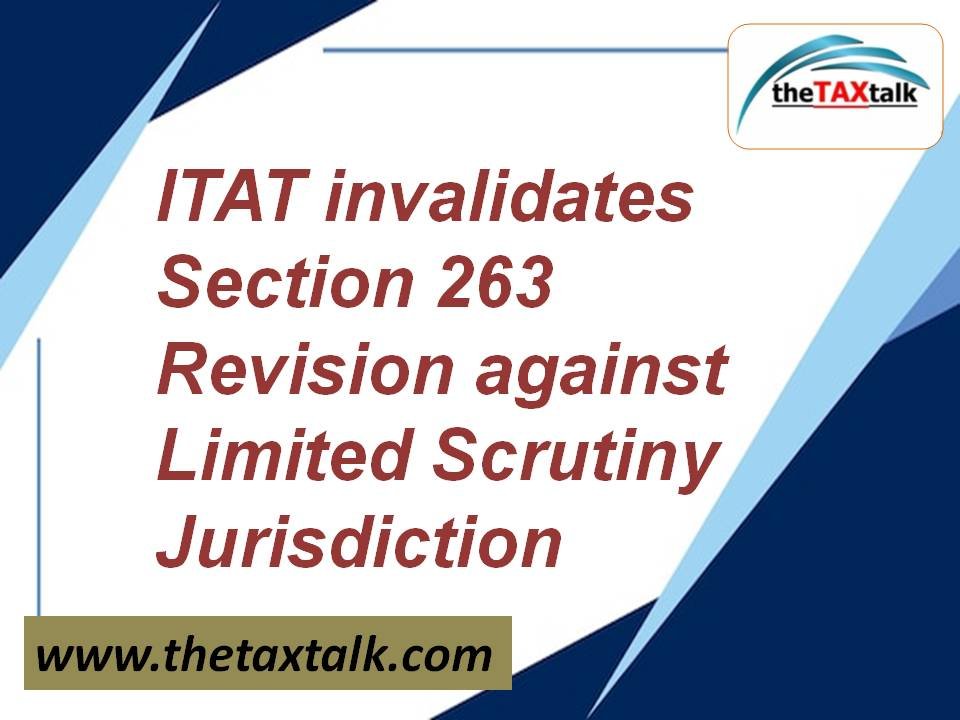![]()
ITAT invalidates Section 263 Revision against Limited Scrutiny Jurisdiction
Recently, ITAT has invalidated section 263 Revision against Limited Scrutiny Jurisdiction in the case of Arabinda Paul vs PCIT (ITA No.946/KOL/2023; AY 2017-18; Date of Judgement:15/01/2025). The Kolkata Tribunal quashed the revisionary order under Section 263 of the Income Tax Act,1961, passed by the Principal Commissioner of Income Tax (PCIT) for AY 2017-18.
Let us have a Short Overview of the case:
The assessee filed his income tax return for AY 2017-18, declaring a total income ₹4 Lakhs. The case was selected for limited scrutiny to verify cash deposits made during the year. The assessment was made under S. 143(3) by the AO accepting the returned income after verification of evidence.
The assessee moved an appeal to the PCIT, where it was observed that there were certain discrepancies regarding certain investments made as loans and advances amounting to ₹78 Lakhs to four parties, for which there were no supporting documents submitted as evidence. The PCIT invoked S. 263, stating that the AO failed to check these transactions, leading to an underassessment of income. The PCIT directed a fresh assessment to be made on the assessee.
Aggrieved by the PCIT’s order, the assessee appealed to the ITAT and contended that the case was selected for limited scrutiny for examining cash deposits as per the notice issued under S.143(2). The assessee contended that the AO assessed the matter within the scope of limited scrutiny and the order was neither wrong nor prejudicial to the revenue; however, the PCIT’s order violated the legal provisions established by the Supreme Court in the case of Malabar Industrial Co Ltd vs CIT (2000) 243 ITR 83, in which it was held that to invoke provisions of Section 263 both erroneous order and prejudice to revenue must be satisfied. The assessee asserted that these conditions had not been met in the present case.
The Tribunal held that the AO adhered to the limited scrutiny extent, examining cash deposits based on the notice issue and the submissions made by the assessee.
The ITAT observed that PCIT’s jurisdiction under Section 263 could not be invoked to address issues outside the scope of limited scrutiny unless the case was converted to full scrutiny.
The tribunal further held that the revisionary order failed to establish the conditions considered to be mandatory to invoke S. 263 as per the judgement given by the Supreme Court in the case of Malabar Industrial Co Ltd vs CIT as a mere disagreement with the AO’s conclusions does not render the order erroneous or prejudicial to the revenue.
The Tribunal concluded that the PCIT’s order under Section 263 was invalid and quashed.
The copy of the order is as under:


